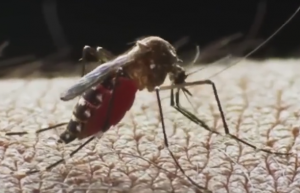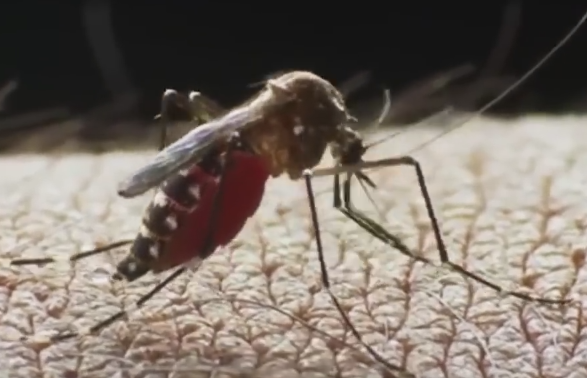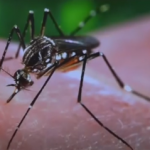Zika fever is caused by the zika virus, which belongs to the family of the same virus which causes dengue, the Flavivirus. Therefore it shows similar symptoms as that of dengue and other closely related alphavirus family disease, chikungunya. The main symptoms are similar to dengue, but in a very milder form. These include mild fever, joint pain, conjunctivitis and rashes.
The disease also shows connection between a mother suffering from Zika Virus and a child born with microcephaly. Microcephaly is a congenital disorder characterized by small size of skull and associated with reduced brain development. It is suggested that parents should avoid pregnancy, if the mother is suffering from Zika Virus, due to the increased chances of developing microcephaly in the child.
Zika Fever – Symptoms

As stated earlier, the symptoms are similar to that of dengue and chikungunya. The common symptoms include fever, rashes, joint pain, conjunctivitis, muscle pain and headache. The incubation period is from several days to a week. Incubation period is the term given to the period between the exposure to virus or pathogen and the appearance of symptoms in the affected individual. The illness lasts from a few days to a week. The illness is very mild and does not require hospitalization. Death is very rare in this condition.
Diagnosis
There are many other viral diseases endemic to the areas affected by Zika Virus. Therefore it is difficult to diagnose the condition based on the signs and symptoms of the patient. A few blood tests should be done to rule out the condition. These include the IgM, IgG and PCR tests. Two samples of the affected person are collected. One is known as the acute serum as it is collected within 5 days of symptom onset. Other one is the convalescent serum, which is collected 2 to 3 weeks later. The tests should be performed on both these samples to rule out any false positive tests, as some cross reactivity can be seen with viruses of the same group.
Transmission
This virus is transmitted by the bite of a mosquito vector, the Aedes mosquito. This mosquito generally bites during the daytime. In very few cases, sexual transmission and transmission through blood transfusion is also seen. It is also seen getting transmitted in natal period in a very few cases.
Prevention
There is no commercially available vaccine to prevent this disease but many researches are being carried out on the same. As the disease is transmitted by the vector mosquito, control of the vector agent is an important factor in the prevention of the disease. Various measures can be taken to prevent the bite of vector like:
- Use of proper insect repellents which can be applied topically
- Use of long sleeves clothes
- Eucalyptus oil can also be used to prevent mosquito bite
- If sunscreen is applied before the application of insect repellent, let it dry first then apply the repellent
- Use bed net to prevent the bites during night when you are asleep
Complication
The appearance of Zika fever is known to be associated with Guillian-Barre syndrome, especially in the cases found in French Polynesia. This syndrome is characterised by muscle weakening of rapid onset. This is due to damage to the peripheral nervous system. This condition can be life threatening as in the acute phase, weakening of the respiratory muscles can also be seen. This can be life threatening and the patient may require mechanical ventilation to maintain breathing. This is an autoimmune disorder and the exact cause of occurrence is not known. The body’s immune cells start damaging the peripheral nerves. Also, the reason for correlation between zika infection and Guillian-Barre syndrome is not known. This is a field of study and researches are being done to know more about this correlation.
Zika Fever – Treatment
The treatment focuses on treating the symptoms as there are no commercially available vaccines or medications which can be effective enough against this disease. The symptoms are treated by drinking plenty of water to prevent dehydration. Consider consuming enough of ORS to prevent depletion of level of ions in the body. Make sure to get plenty of rest and do not attempt going to work if you are suffering from this disease. It will be exhausting for you also and will increase the chances of spread of the disease to some other people.
If you are suffering from high fever, you can take acetaminophen to relieve fever and pain. Do not attempt to use any other non-steroidal anti-inflammatory drug for the same, as they can result in internal haemorrhage, which can cause any further complication.
Also try to prevent mosquito bites in the first week of your illness. This will help in preventing spreading of the infection. If a mosquito bites you during your illness, it will get infected with the zika virus and when it will bite some other person, the infection will further spread to that healthy person.

